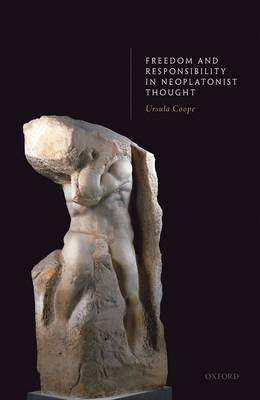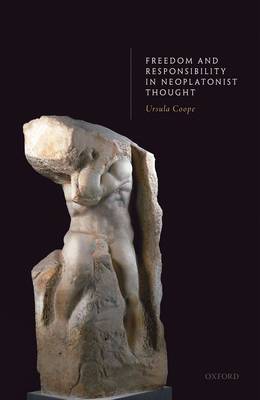
- Retrait gratuit dans votre magasin Club
- 7.000.000 titres dans notre catalogue
- Payer en toute sécurité
- Toujours un magasin près de chez vous
- Retrait gratuit dans votre magasin Club
- 7.000.000 titres dans notre catalogue
- Payer en toute sécurité
- Toujours un magasin près de chez vous
156,45 €
+ 312 points
Description
The Neoplatonists have a perfectionist view of freedom: an entity is free to the extent that it succeeds in making itself good. Free entities are wholly in control of themselves--they are self-determining, self-constituting, and self-knowing. Neoplatonist philosophers argue that such freedom is only possible for non-bodily things. The human soul is free insofar as it rises above bodily things and engages in intellection, but when it turns its desires to bodily things, it is drawn under the sway of fate and becomes enslaved. Ursula Coope discusses this notion of freedom and its relation to questions about responsibility. She explains the important role of notions of self-reflexivity in Neoplatonist accounts of both freedom and responsibility. In Part I, Coope sets out the puzzles Neoplatonist philosophers face about freedom and responsibility and explains how these puzzles arise from earlier discussions. Part II explores the metaphysical underpinnings of the Neoplatonist notion of freedom (concentrating especially on the views of Plotinus and Proclus). In what sense, if any, is the ultimate first principle of everything (the One) free? If everything else is under this ultimate first principle, how can anything other than the One be free? What is the connection between freedom and nonbodiliness? Finally, Coope considers in Part III questions about responsibility, arising from this perfectionist view of freedom. Why are human beings responsible for their behaviour, in a way that other animals are not? If we are enslaved when we act viciously, how can we be to blame for our vicious actions and choices?
Spécifications
Parties prenantes
- Auteur(s) :
- Editeur:
Contenu
- Nombre de pages :
- 302
- Langue:
- Anglais
Caractéristiques
- EAN:
- 9780198824831
- Date de parution :
- 16-06-20
- Format:
- Livre relié
- Format numérique:
- Genaaid
- Dimensions :
- 160 mm x 236 mm
- Poids :
- 589 g







